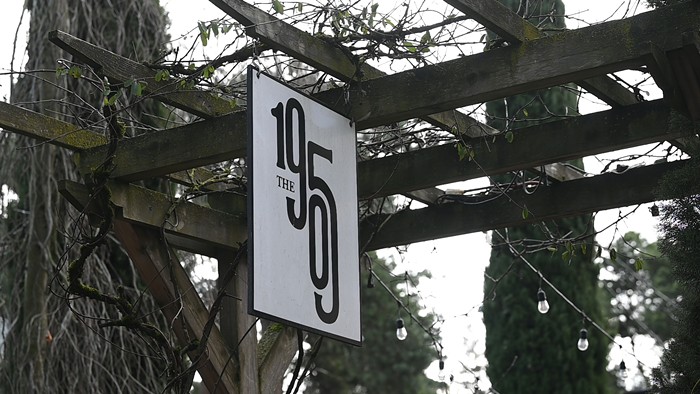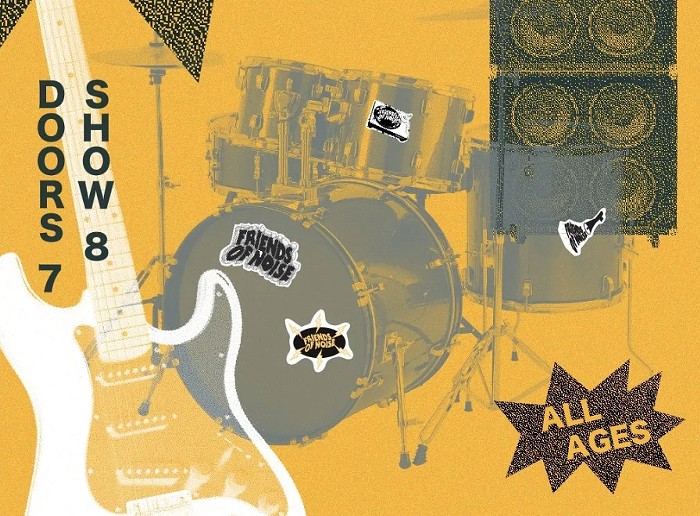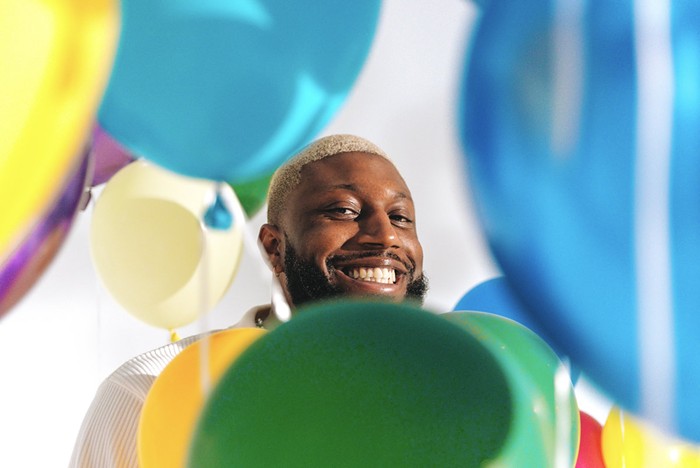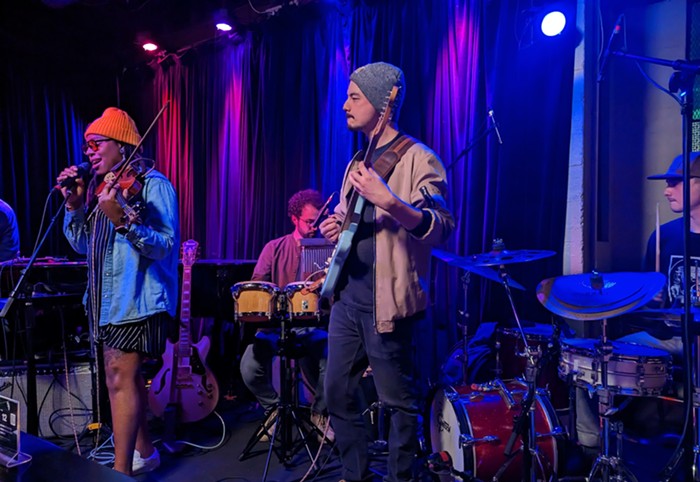
You might not be familiar with his name yet, but last weekend, Denzel Mendoza won a Grammy.
It all began one day last March, when Mendoza—a Portland-based trombonist who plays with local acts like Kulululu, Haley Heynderickx, and Joshua Thomas—received a call from music attorney Doug Davis while he was in a recording session with the Portland Jazz Composers' Ensemble. Davis wanted Mendoza to be part of a new project he was spearheading with producer Kabir Sehgal and celebrated trumpeter/composer John Daversa called American Dreamers: Voices of Hope, Music of Freedom.
The album would feature more than 50 "DREAMers"—young people who qualify for the Development, Relief, and Education for Alien Minors (DREAM) Act—performing reinterpretations of songs like “America" from West Side Story, Woody Guthrie's “Deportee (Plane Wreck at Los Gatos)," and James Brown's “Living in America." Davis asked to hear Mendoza's recorded material, so he sent the KEXP session he'd recently done with Haley Heynderickx. "He got back to me immediately," Mendoza says, "and was like, 'Oh my god, you are the unicorn we need.'"
The very next day, Mendoza flew to Miami and spent 15 hours recording with musicians he'd never met before—an experience he says was particularly special since, "as a DREAMer, you don't meet other DREAMers, because you try to hide, you know, we're not that public. But I try to be open about it and proud to be undocumented, because it's what has created my whole being."
American Dreamers took home Grammy awards in every category it was nominated for, including Best Large Jazz Ensemble Album and Daversa's wins for Best Improvised Jazz Solo ("Don't Fence Me In") and Best Arrangement, Instrumental or A Cappella ("Stars and Stripes Forever"). At the ceremony last weekend, Mendoza says he and the other DREAMers "felt like rockstars. I finally felt like an accomplished musician... From the get-go I knew this was going to be a big album—I mean like, Nancy Pelosi endorsed it, that's huge. Getting flown out to Miami and meeting John Daversa, who I've been a fan of since high school, was pretty insane. I knew it was going to be big, I just had no idea it was going to win three Grammys."
Mendoza moved to the US from Singapore when he was five years old. "When I was nine years old my dad left the country and sort of just like, abandoned my mother and my sister and I," he explains. "We were under his work visa, and because of that we overstayed our visas and became undocumented."
Around this time he decided to try learning an instrument, and was drawn to the trumpet (partially due to his love of ska). "So my mom bought me a trumpet from a pawn shop and then on the first day of middle school, my teacher told me that my lips were too big to play trumpet, which is so not true. I think it's because there were too many students who wanted to play it. So I picked up the trombone and it just stuck with me. It was a funny instrument to me at the time and I found that as a sort of escape, obviously from being sad, but also it made me unique in this sense... I grew up in Las Vegas in this town where it's primarily white, especially the neighborhood we lived in, and I wanted to stand out more."
Throughout our conversation, Mendoza emphasizes that his life has changed tremendously (and for the better) since moving to Portland a few years ago. But the move was preceded by an extremely dark chapter, after he left music school in New York and moved back home to Las Vegas. "I had no money at all and I wanted to join the military," he says. "That's always been in the back of my mind ever since I was raised in this country, like, 'Just join the military, be like your cousins and your uncles.' So I tried enlisting in the army the day I got back to Las Vegas, and when I saw my army recruiter, he noticed that I was under DACA, and that didn't work out for me because in order to enlist if you're under DACA, you have to know a second language, which is really weird because I was raised in this country. I've been here since 2000, and the only language I know is English—I'm as American as apple pie, I just don't have a piece of paper that tells me otherwise."
Unable to join the military and afraid of getting stuck in Las Vegas, Mendoza decided to move to Portland with two of his childhood best friends who had also dropped out of music school. He says a chance meeting with local singer/songwriter Haley Heynderickx a couple of days after Trump's election was an "upstart that made things happen for me in Portland."
"Talking about it is giving me chills right now, because that was one of my lowest points," he explains. "His whole entire campaign rhetoric was like, 'We're going to deport all the illegals in this country.' I was extremely scared; I feared for my life and my family and the hundreds of thousands of people affected."
On this particular day, Mendoza was milling around Southeast Portland with his trombone after a gig got cancelled and saw a Facebook event for a house show nearby. "I knocked on the door and there's this Filipino woman, and I'm like, 'You're Haley Heynderickx, you're Filipino, and I'm Filipino! I haven't met a single other Filipino person in town yet.' So we immediately connected and became friends, and she saw that I had my trombone on me and for some reason she was like, 'Hey, do you wanna open up my set?' I was just so upset about what had happened in the election and I just came out and told everybody in that room, 'Hi, my name's Denzel Mendoza and I'm undocumented. How I feel right now doesn't really make sense to me at all. I'm angry, I'm sad, I'm losing faith in everything, like, why did I pick a passion that won't take me anywhere?' Obviously music isn't the most promising career. So I just told everybody like, 'I'm going to perform this improvised solo, and I'm just going to play my feelings.' And I did this 15 or 20-minute solo trombone song."
Since that fortuitous meeting, he's toured the country backing Heynderickx (including a stop at NPR's Tiny Desk). When asked about his future plans, Mendoza says he wants to focus on making music under the moniker Illegal Son. "That's sort of like my baby project right now," he explains. "I've never been a bandleader, I've always been like a side guy for all these projects and I love that, playing with Haley and Kulululu and Joshua Thomas. This year I'm really trying to push my creativity and my musicianship by becoming a bandleader with this project."



















